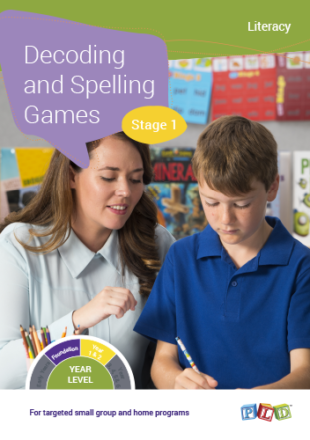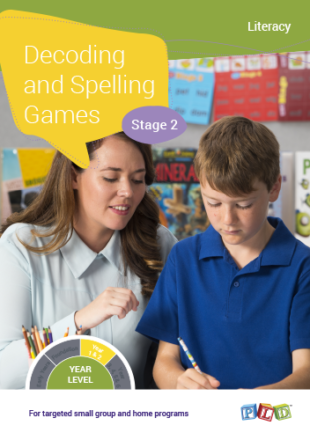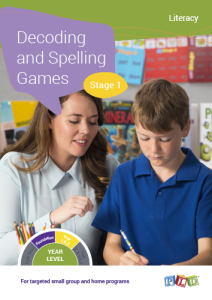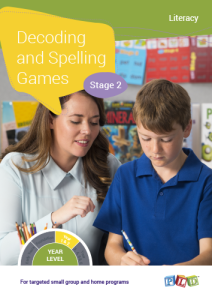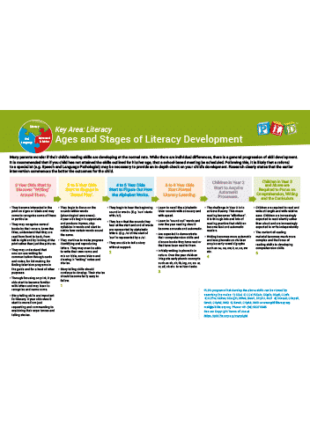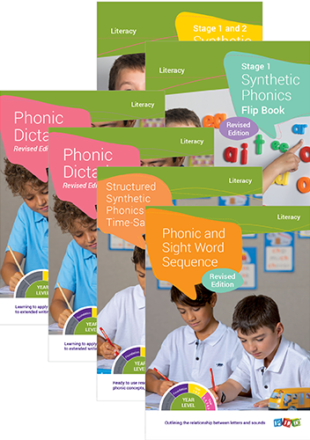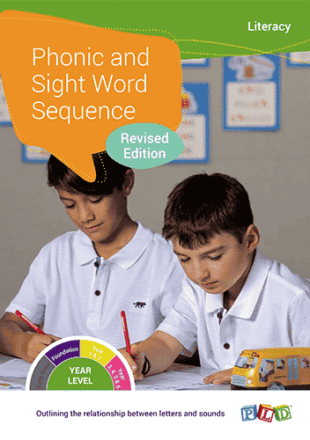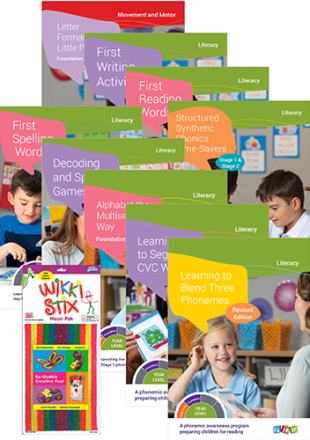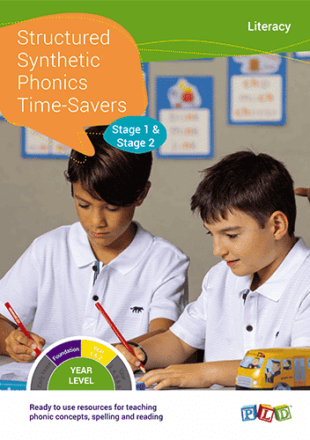| Book |
Decoding and Spelling Games Bundle – Stage 1 & Stage 2
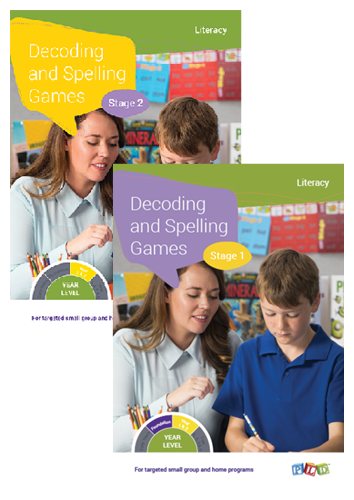

Buy both resources in a bundle and save 15%. Click on each of the links below if you wish to view the stages individually.
Over time children become more efficient in a visual and an auditory sense. For example rather than decoding the word ‘teeth’ in three parts the word may be decoded in two parts (e.g. t-eeth or tee-th). Decoding and Spelling games for Stage 1 & 2 are designed to provide further decoding practice to help students establish automatic word recognition.
Single word spelling involves three primary core base skills:
- Auditory skills
- Visual skills
- Fine motor skills
Once this spelling process has been rehearsed the students can typically spell the word automatically and often through the application of letter names ‘c-h-a-i-n’. Students will typically read better than they will spell. This is because the recognition of the words (i.e. reading) is typically much easier than the reproduction of the letter sound correspondences to
formulate the words.
Features:
- Single word phonic word attack skills require explicit instruction and repeated practice.
- Once single word skills are established, they are more likely to transfer across to written work.
- The program is designed for individuals or small groups of students who require repeated opportunities to consolidate stage 1 spelling and decoding.
- The stage 1 program is organised into four sections:
- Target 1: CVC
- Target 2: CVC with early phonic concepts sh, ch, th, oo, ee, ck
- Target 3: CCVC and CVCC words
- Target 4: Phonic concepts such as ar, or, er, ai, oi
- The game-based activities provide multiple opportunities to rehearse word attack skills at a reading and spelling level.
The individual books within the range include:
This publication is mentioned within the Foundation Teaching Sequence Manual on page 9 & 10 and the Year 1 & 2 Teaching Sequence Man
Decoding and Spelling Games Bundle – Stage 1 & Stage 2 – School Licence


Select your school size
Extra small
(<49 students)
Small
(50-149 students)
Medium
(150-349 students)
Large
(350+ students)
This is a PLD Whole School Licence resource. By purchasing this licence, this program will be accessible as a digital flipbook that will be stored in your secure account on the PLD website. The program will be accessible as a digital flipbook that teachers can access on any device for as long as the licence is active. A School Licence is valid for 12 months from the date of purchase and can be shared with all staff employed at the school. We highly recommend that either the Principal, Deputy Principal or a member of the admin team purchase the School Licence in order to manage the account and its users. For more information, visit our Whole School Licence FAQ.
Over time children become more efficient in a visual and an auditory sense. For example rather than decoding the word ‘teeth’ in three parts the word may be decoded in two parts (e.g. t-eeth or tee-th). Decoding and Spelling games for Stage 1 & 2 are designed to provide further decoding practice to help students establish automatic word recognition.
Single word spelling involves three primary core base skills:
- Auditory skills
- Visual skills
- Fine motor skills
Once this spelling process has been rehearsed the students can typically spell the word automatically and often through the application of letter names ‘c-h-a-i-n’. Students will typically read better than they will spell. This is because the recognition of the words (i.e. reading) is typically much easier than the reproduction of the letter sound correspondences to
formulate the words.
Features:
- Single word phonic word attack skills require explicit instruction and repeated practice.
- Once single word skills are established, they are more likely to transfer across to written work.
- The program is designed for individuals or small groups of students who require repeated opportunities to consolidate stage 1 spelling and decoding.
- The stage 1 program is organised into four sections:
- Target 1: CVC
- Target 2: CVC with early phonic concepts sh, ch, th, oo, ee, ck
- Target 3: CCVC and CVCC words
- Target 4: Phonic concepts such as ar, or, er, ai, oi
- The game-based activities provide multiple opportunities to rehearse word attack skills at a reading and spelling level.
The individual books within the range include:
This publication is mentioned within the Foundation Teaching Sequence Manual on page 9 & 10 and the Year 1 & 2 Teaching Sequence Manual
Books: PLD’s books may be used by the authorised purchaser within their classroom, however there are restrictions regarding modifying, copying or sharing. Full details can be found here.
School Licences: A School Licence allows access to a resource to be shared with an unlimited number of employees who are employed by the ‘Authorised purchaser’. These resources can be accessed by multiple users simultaneously and can be printed (subject to restrictions) or displayed by employees of the ‘Authorised purchaser’ within their classroom. Learn more here.
Downloadable resources & screening tools: These resources can be viewed, downloaded, printed and shared providing the resources are not modified in any way. Learn more here.
Breaches of Australian Copyright Law are taken seriously and may result in legal action being taken. Full copyright information can be found. Learn more here.
Additional information
Decoding and Spelling Games - Stage 1
| Weight | .64 kg |
|---|---|
| Dimensions | 30 × 21 × 1.5 cm |
Decoding and Spelling Games - Stage 2
| Weight | .56 kg |
|---|---|
| Dimensions | 30 × 21 × 1.5 cm |



